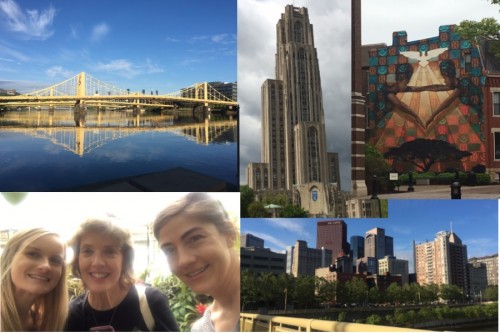This article is more than 5 years old.
For me, the main theme of this year’s LOEX was Critical Pedagogy. Critical pedagogy has been buzzing around the library instruction world since at least 2005, but has its roots in the works of authors such as Paulo Freire, bell hooks, and Henry Giroux, to name a few. I hesitate to define critical pedagogy, but I’ll try by saying it is a pedagogy that concerns itself with designing learning situations in which students are empowered to question traditional oppressive power structures, be it capitalism, patriarchy, white supremacy, imperialism, etc…

Critical Pedagogy in Library Instruction
There was quite a bit of talk about the role that critical pedagogy can play in library instruction. One practical example would be teaching students about the white, patriarchal assumptions made by traditional information organizational schemas, like Library of Congress subject headings. (Relevant example, it took until 2016 to switch from “illegal aliens” to “unauthorized immigrants). There are several more great examples in the slides of: Eamon Tewell’s “The Practice and Promise of Critical Information Literacy”

Critical Library Practice
What’s cool is critical pedagogy is not just for librarians with instructional responsibilities. Critical library practice is for everyone in the library. (The Canadian Journal of Academic Librarianship recently dedicated their entire opening journal issue to critical library practice). Archivists, access services, and resource services have been engaging in critical practice for years, so this is probably nothing new to them. Nevertheless, I’m happy to see these conversations happening with such frequency and urgency now. You can read more about Jeremy McGinniss’s ideas for engaging in critical pedagogy with student workers here:
Critical pedagogy is an important movement (maybe the most important movement) happening in library instruction and I think it deserves thoughtful reflection. It seems like it’s no accident that these conversations are ramping up at the same time as local conversations about campus climate and national conversations on racism, sexism, homophobia. transphobia, and other oppressive movements. I’m excited to work on this moving forward. Recently I’ve been having students edit Wikipedia, which is a great introduction to some of these ideas. I’m hoping to have some time this summer to brainstorm more ways to successfully implement critical pedagogy in my own classroom.

12 Comments on ‘Amanda at LOEX 2016’
Thanks for all the helpful links, very much appreciated!
Amanda, LOEX sounds amazing! I appreciated your post on Critical Pedagogy and will be digging deeper into how to include it in LIB210! Thanks for a great post!
I’ve started pushing back about Wikipedia a little due to its notability criteria. Might be an interesting conversation to have with students!
Stephanie – Yes, absolutely. The notability/secondary sources requirement exacerbates the systemic bias problem in Wikipedia. One of the many reasons Wikipedia is a great case study. 🙂
Critical Pedagogy sounds like it would make for an interesting discussion group next fall! Thanks!
Oh, I can’t wait to talk to you about thoughts I’ve had recently about teaching copyright and fair use to undergrads, particularly with my uses of Beyonce, Robin Thicke, and Bob Dylan. Sounds like my thinking is in line with some of the issues Critical Pedagogy is addressing.
Congratulations on a successful Loex conference and presentation. I’ve learned a lot just from reading your post about critical pedagogy. This is a timely and important movement within information literacy and beyond. thanks!
Informative.
Amanda, I loved following all of the tweets coming out of this year’s LOEX! I’ve also been following the emergence of critical pedagogy, and I would love to talk about it more with you, especially as you continue to develop your Wikipedia assignment. Thanks for sharing!
Glad it was a good conference and nice to see you three there! Pittsburgh is also a great location.
Great discussion of critical pedagogy and so much food for thought for all we do at ZSR. Thanks!
What an interesting conference it must have been, thanks for all the information on critical pedagogy. Lots of food for thought.